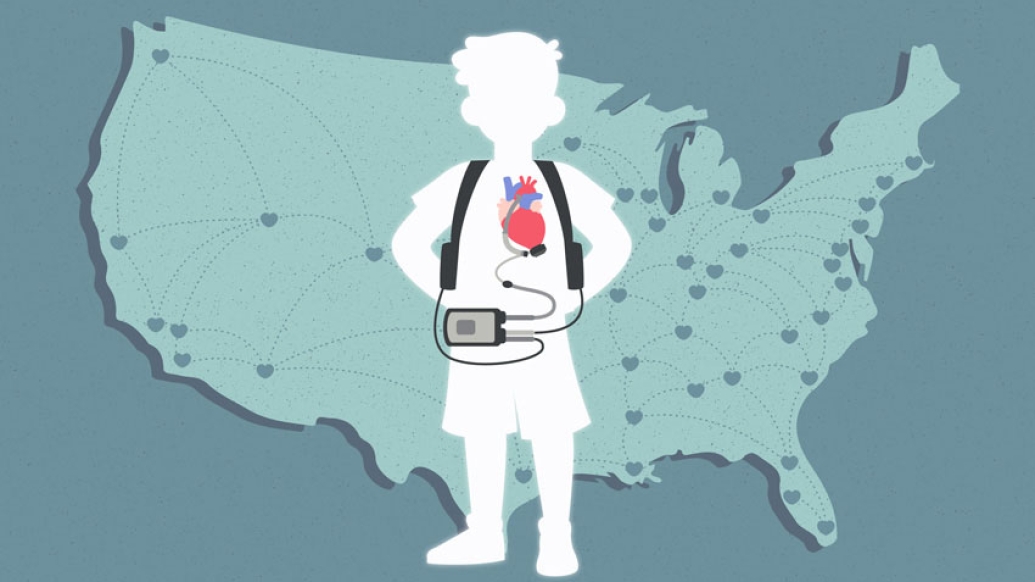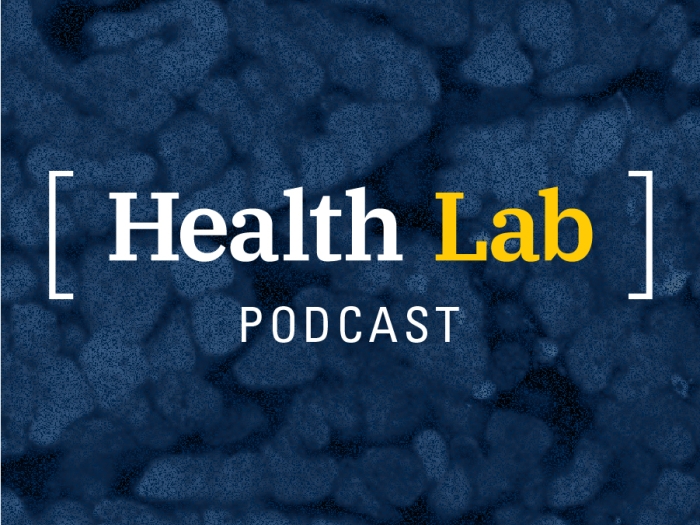Hospitals across the country are teaming up to improve outcomes in kids who need mechanical heart pumps for congenital heart disease or heart failure.
5:00 AM
Author |

Children who experience severe heart failure, including those waiting for a heart transplant, often need a mechanical heart pump to help their bodies circulate blood.
While this surgically implanted ventricular assist device, or VAD, is necessary, it comes with the risk of causing a blood clot that can lead to a stroke – an outcome once experienced by up to one in three children who use a heart pump.
MORE FROM THE LAB: Subscribe to our weekly newsletter
But a group of clinicians, researchers, and parents from across the country have been working together to reduce stroke risk for this population of kids, and now, new research suggests that they're making gains.
Following years of sharing data, best practices and implementing interventions through a collaborative called the Advanced Cardiac Therapies Improving Outcomes Network, also known as ACTION, stroke rates decreased for children with artificial heart pumps, according to the Michigan Medicine led study.
"Pediatric heart failure is a very serious, life-threatening condition that has been under resourced and gone years without proven therapies," said lead author David Peng, M.D., pediatric cardiologist and director of pediatric heart failure and mechanical circulatory support at University of Michigan Health C.S. Mott Children's Hospital.
"Leaders in the field have come together to improve outcomes for these children, recently making it a top priority to reduce stroke risk."
Those efforts are making a difference, suggests the study that appears in Pediatric Cardiology.Researchers analyzed data from 407 children with VADs between 2018 and 2021 through the ACTION collaborative, which includes nearly 50 centers across the U.S.
Without creating a brand-new heart pump or any new technologies, we were able to decrease the stroke risk across all of our centers by simply sharing and standardizing care.David Ming-Shen Peng, MD
Forty-five children with an implanted device in the study, or 11%, experienced at least one stroke. Stroke rates were previously reported as high as 33% in pediatric VAD patients.
Peng noted that about one in four children on a heart transplant waiting list will require a VAD.
"As pediatric heart providers, our community is working better together and this collaboration is having a huge impact on outcomes," Peng said. "We are transparently sharing and reviewing each other's stroke data to see how we can learn from these experiences and continue to decrease risks for kids."
"We are all committed to improving care for our pediatric heart patients and everyone wins from collaboration over competition."
The study comes four years after ACTION launched a quality improvement initiative across the network in an attempt to decrease stroke risk for children with heart failure.
"We worked to improve the way we measure and control blood pressure, manage anticoagulation, and communicate across teams," Peng said. "Without creating a brand-new heart pump or any new technologies, we were able to decrease the stroke risk across all of our centers by simply sharing and standardizing care."

The study suggests that younger patients with heart failure, particularly babies, toddlers and those of smaller size, are still at highest risk of stroke after a device implant. Those who experienced a stroke were also more likely to have a congenital heart disease or to have used extracorporeal membrane oxygenation, commonly known asECMO, at the time of using an artificial heart pump.
Based on these data, Peng says, ACTION is now focused on improving outcomes for these higher-risk patients.
"We are demonstrating that pediatric mechanical heart pumps are safer than they've ever been," Peng said. "While we've made great progress, some children still have an unacceptably high risk of adverse outcomes, which means we still have a way to go."
Additional authors include Muhammad Shezad, Angela Lorts, Chet Villa and Farhan Zafar, of Cincinnati Children's Hospital Medical Center; Robert Gajarski, of Nationwide Children's Hospital; Christina VanderPluym and Beth Hawkins, of Boston Children's Hospital; and Jenna Murray and David Rosenthal, of Lucile Packard Children's Hospital.
Study cited: "Decreased Risk of Strokes in Children with Ventricular Assist Devices Within ACTION," Pediatric Cardiology. DOI:10.1007/s00246-022-02863-7
Like Podcasts? Add the Michigan Medicine News Break on iTunes or anywhere you listen to podcasts.

Explore a variety of health care news & stories by visiting the Health Lab home page for more articles.

Department of Communication at Michigan Medicine
Want top health & research news weekly? Sign up for Health Lab’s newsletters today!





